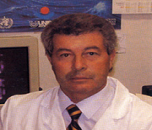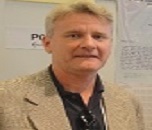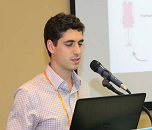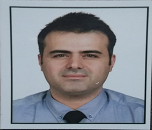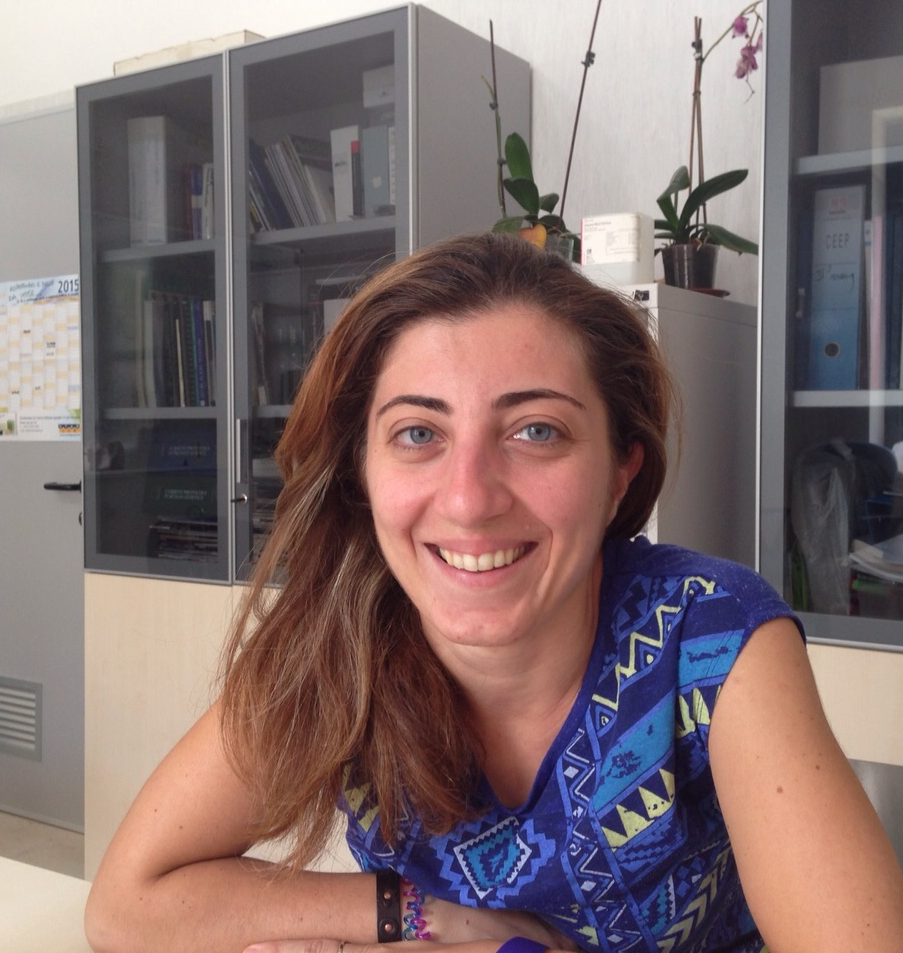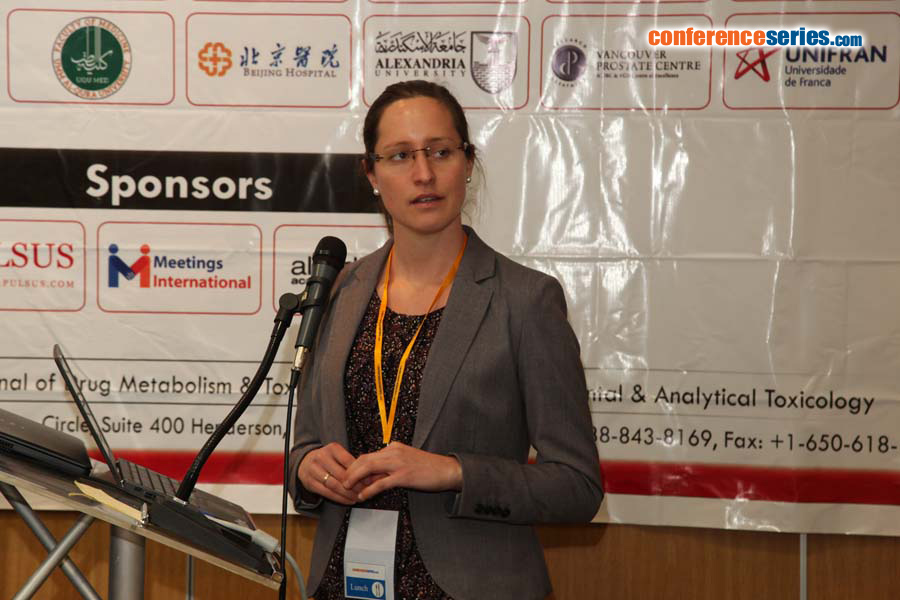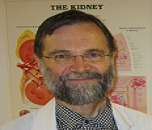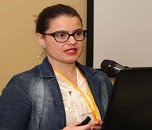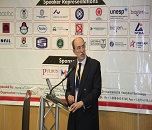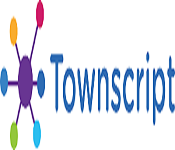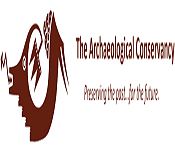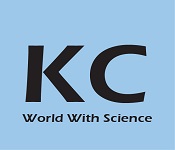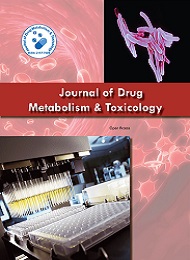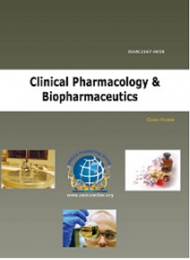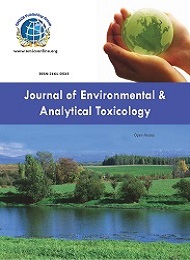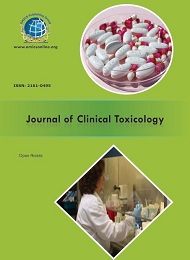Theme: Exploring the Novel Technologies and Safety Approach in Toxicology and Applied Pharmacology
Europe Toxicology 2020
Euro Toxicology 2020 is a global overview which will provide an international platform for the discussion of Toxicology and Applied Pharmacology. This event gathers all the eminent persons, professors, scientists, doctors, medical practitioners, health workers, professionals, students, and industrialists all over the world to exchange their ideas, researches and their experiences. It also brings together persons particularly interested in the chemistry of Toxicology and Applied Pharmacology, both Toxicological, Medical and Clinical; to Poster programs of general papers and symposia on special topics dealing with this field of Toxicology and Pharmacology; to promote such other activities as will stimulate activity in and emphasize the importance of research in Toxicology and Applied Pharmacology. Our conference provides quality, timely Symposium at 22nd Euro-Global Summit on Toxicology and Applied Pharmacology. The Conference works under the Theme “Exploring the Novel Technologies and Safety Approach in Toxicology and Applied Pharmacology” It chiefly centre about the slanting innovations and improvement in the territory of Euro Toxicology 2020.
Why to attend?
Euro Toxicology 2020 event shall lay a platform for the interaction between specialists around the world and aims to accelerate scientific discoveries creating the conference an ideal platform to share expertise, foster collaborations across trade and world, and assess rising technologies across the world.
Researchers across the world are going to showcase their research work at this platform, wherein the students are going to learn innovative techniques from them. Moreover this platform provides a scope to share each other knowledge and execute it for the betterment of the in the near future. A novel chance for advertisers and sponsors at this International event.
Track 1: Medical Toxicology
Medical Toxicology is a field of medicine dedicated to the evaluation and treatment of poisoned and envenomated patients. This also includes adverse health effects of medications, occupational and environmental toxins, and biological agents.
Europe: British Toxicology Society (BTS) | EUROTOX Federation of European Toxicologists & European Societies of Toxicology | German Society of Toxicology (GST) | European Society of Toxicologic Pathology (ESTP) | European Society of Toxicology In Vitro (ESTIV) | Finnish Society of Toxicology (FST) | Swedish Society of Toxicology (SST) | Austrian Society of Toxicology (AST) | Swiss Society for Clinical Pharmacology (SSCP) | Czech Society for Experimental and Clinical Pharmacology and Toxicology | European Association for Clinical Pharmacology and Therapeutics | Russian Society of Toxicology | Spanish Association of Toxicology | Societies of Pharmacology World-Wide.
Track 2: Clinical Toxicology
Poisoning is an adverse effect from a chemical that has been taken in excessive amounts. The body is able to tolerate and, in some cases, detoxify a certain dose of a chemical; however, once a critical threshold is exceeded, toxicity results. Poisoning can produce minor local effects that can be treated readily in the outpatient setting or systemic life-threatening effects that require intensive medical intervention. This spectrum of toxicity is typical for many chemicals with which humans come in contact.
USA: American Board of Toxicology (ABT) | Society of Toxicology (SOT) | American Board of Forensic Toxicology (ABOFT) | American Board of Veterinary Toxicology (ABOVT) | American College of Toxicology (ACT) | American Academy of Clinical Toxicology (AACT) | International Union of Toxicology (IUTOX) | Society of Forensic Toxicologists (SFT) | Society for Risk Assessment (SRT) | Colombia Society of Toxicology (CST) | Toxicology Cuban Society (TCS).
Track 3: Computational Toxicology
Computational toxicology is a branch of toxicology concerned with the development and use of computer-based models to understand and predict the interactions of biological organisms (at population, individual, cellular, and molecular levels) with pollutants in the air, water, soil and food, and their adverse health effects that they may cause.
Asia Pacific: Asia Pacific Association of Medical Toxicology (APAMT) | SETAC | Society of Toxicology of Canada (STC) | Bangladesh Society of Toxicology (BST) | Korean Society of Clinical Toxicology (KSCT) | Philippine Society of Clinical and Occupational Toxicology.
Track 4: Food and Nutritional Toxicology
In essence, toxicology is the science of poisons, toxicants, or toxins. Toxin is a substance capable of causing harm when administered to an organism. Harm can be defined as seriously injuring or, ultimately, causing the death of an organism. This is a rather simplistic definition, because virtually every known chemical or substance has the potential for causing harm. The term toxin usually refers to a poison derived from a protein or conjugated protein produced by some higher plant, animal, or pathogenic bacteria that is highly poisonous for other living organisms
Europe: Federation of European Pharmacological Societies | Swiss Society for Clinical Pharmacology (SSCP) | Czech Society for Experimental and Clinical Pharmacology and Toxicology | European Association for Clinical Pharmacology and Therapeutics | Russian Society of Toxicology | Spanish Association of Toxicology | British Toxicology Society (BTS) | EUROTOX Federation of European Toxicologists & European Societies of Toxicology | German Society of Toxicology (GST) | European Society of Toxicologic Pathology (ESTP) | European Society of Toxicology In Vitro (ESTIV) | Finnish Society of Toxicology (FST) | Swedish Society of Toxicology (SST) | Austrian Society of Toxicology (AST) | European Behavioural Pharmacology Society.
Track 5: Toxicogenomics
Toxicogenomics is a sub discipline of pharmacology that deals with the collection, interpretation, and storage of information about gene and protein activity within a particular cell or tissue of an organism in response to exposure to toxic substances. Toxicogenomics is defined as the application of genomic technologies (for example, genetics, genome sequence analysis, gene expression profiling, proteomics, metabolomics, and related approaches) to study the adverse effects of environmental and pharmaceutical chemicals on human health and the environment. Toxicogenomics may lead to information that is more discriminating, predictive, and sensitive than that currently used to evaluate toxic exposure or predict effects on human health.
USA: American Board of Toxicology (ABT) | Society of Toxicology (SOT) | American Board of Forensic Toxicology (ABOFT) | American Board of Veterinary Toxicology (ABOVT) | American College of Toxicology (ACT) | American Academy of Clinical Toxicology (AACT) | International Union of Toxicology (IUTOX) | Society of Forensic Toxicologists (SFT) | Society for Risk Assessment (SRT) | Colombia Society of Toxicology (CST) | Toxicology Cuban Society (TCS).
Track 6: Toxicology and Risk Assessment
Toxicology Risk Assessment gives details of a product’s consistency with measures such as health and security and market acknowledgment all over the parts of the product in areas of manufacturing and distributing. Toxicological assessments helps in determining if the product poses a potential risk for the toxicological ranges measured. Hence the Toxicology studies are most essential in Product management and Product testing.
Asia Pacific: Asia Pacific Association of Medical Toxicology (APAMT) | SETAC | Society of Toxicology of Canada (STC) | Bangladesh Society of Toxicology (BST) | Korean Society of Clinical Toxicology (KSCT) | Philippine Society of Clinical and Occupational Toxicology.
Track 7: Forensic Toxicology
Forensic toxicology is the use of toxicology and other section like analytical chemistry, pharmacology and clinical chemistry to assist the medical or legal investigation of death, poisoning, and drug use.
Europe: British Toxicology Society (BTS) | EUROTOX Federation of European Toxicologists & European Societies of Toxicology | German Society of Toxicology (GST) | European Society of Toxicologic Pathology (ESTP) | European Society of Toxicology In Vitro (ESTIV) | Finnish Society of Toxicology (FST) | Swedish Society of Toxicology (SST) | Austrian Society of Toxicology (AST) | Swiss Society for Clinical Pharmacology (SSCP) | Czech Society for Experimental and Clinical Pharmacology and Toxicology | European Association for Clinical Pharmacology and Therapeutics | Russian Society of Toxicology | Spanish Association of Toxicology | Societies of Pharmacology World-Wide.
Enzyme inhibitors are substances which bind to the enzyme with resulting loss of activity, without damaging the enzyme's protein structure. Enzyme inhibitors are used as tools for studying enzymes and as drugs for treating certain disorders. Enzyme inhibitors are classified as reversible or irreversible.
USA: American Board of Toxicology (ABT) | Society of Toxicology (SOT) | American Board of Forensic Toxicology (ABOFT) | American Board of Veterinary Toxicology (ABOVT) | American College of Toxicology (ACT) | American Academy of Clinical Toxicology (AACT) | International Union of Toxicology (IUTOX) | Society of Forensic Toxicologists (SFT) | Society for Risk Assessment (SRT) | Colombia Society of Toxicology (CST) | Toxicology Cuban Society (TCS).
Track 9: Mass Spectrometry
Mass spectrometry is a powerful analytical technique used to quantify known materials, to identify unknown compounds within a sample, and to elucidate the structure and chemical properties of different molecules. The complete process involves the conversion of the sample into gaseous ions, with or without fragmentation, which are then characterized by their mass to charge ratios (m/z) and relative abundances.
Asia Pacific: Asia Pacific Association of Medical Toxicology (APAMT) | SETAC | Society of Toxicology of Canada (STC) | Bangladesh Society of Toxicology (BST) | Korean Society of Clinical Toxicology (KSCT) | Philippine Society of Clinical and Occupational Toxicology.
Track 10: Analytical Toxicology
Analytic toxicology involves the application of the tools of analytic chemistry to the qualitative and or quantitative estimation of chemicals that may exert adverse effects on living organisms.
Europe: Federation of European Pharmacological Societies | Swiss Society for Clinical Pharmacology (SSCP) | Czech Society for Experimental and Clinical Pharmacology and Toxicology | European Association for Clinical Pharmacology and Therapeutics | Russian Society of Toxicology | Spanish Association of Toxicology | British Toxicology Society (BTS) | EUROTOX Federation of European Toxicologists & European Societies of Toxicology | German Society of Toxicology (GST) | European Society of Toxicologic Pathology (ESTP) | European Society of Toxicology In Vitro (ESTIV) | Finnish Society of Toxicology (FST) | Swedish Society of Toxicology (SST) | Austrian Society of Toxicology (AST) | European Behavioural Pharmacology Society.
Track 11: Clinical Pharmacology
Clinical pharmacology is a branch of biomedical science. It includes drug discovery, the study of the effects of drugs on their targets in living systems and their clinical use, as well as the study of biological function related to these chemicals. Clinical pharmacology also connects the gap between medical practice and laboratory science.
USA: American Board of Toxicology (ABT) | Society of Toxicology (SOT) | American Board of Forensic Toxicology (ABOFT) | American Board of Veterinary Toxicology (ABOVT) | American College of Toxicology (ACT) | American Academy of Clinical Toxicology (AACT) | International Union of Toxicology (IUTOX) | Society of Forensic Toxicologists (SFT) | Society for Risk Assessment (SRT) | Colombia Society of Toxicology (CST) | Toxicology Cuban Society (TCS).
Track 12: Pharmacogenetics
Pharmacogenetics is concerned with the studies of inherited genetic differences in drug metabolic pathways which can affect individual responses to drugs, both in terms of therapeutic effect as well as adverse effects. The term pharmacogenetics is often used interchangeably with the term pharmacogenomics which also investigates the role of acquired and inherited genetic differences in relation to drug response and drug behaviour through a systematic examination of genes, gene products, and inter- and intra-individual variation in gene expression and function.
Asia Pacific: Asia Pacific Association of Medical Toxicology (APAMT) | SETAC | Society of Toxicology of Canada (STC) | Bangladesh Society of Toxicology (BST) | Korean Society of Clinical Toxicology (KSCT) | Philippine Society of Clinical and Occupational Toxicology.
Track 13: Molecular Pharmacology
Molecular Pharmacology deals with the studies of pharmacology with regards to the molecular basis of pharmacology. Molecular pharmacology studies the molecular study of pharmaceuticals and natural compounds used in the treatment of disease. Further molecular pharmacology also focuses on diseases on a molecular basis with the goal of developing pharmacologically active agents which could be used to address diseases.
Europe: British Toxicology Society (BTS) | EUROTOX Federation of European Toxicologists & European Societies of Toxicology | German Society of Toxicology (GST) | European Society of Toxicologic Pathology (ESTP) | European Society of Toxicology In Vitro (ESTIV) | Finnish Society of Toxicology (FST) | Swedish Society of Toxicology (SST) | Austrian Society of Toxicology (AST) | Swiss Society for Clinical Pharmacology (SSCP) | Czech Society for Experimental and Clinical Pharmacology and Toxicology | European Association for Clinical Pharmacology and Therapeutics | Russian Society of Toxicology | Spanish Association of Toxicology | Societies of Pharmacology World-Wide.
Track 14: Immuno Pharmacology
Immunopharmacology deals with the studies of pharmacology and immunology combined together. The field is now diverse and interspersed with other related sub-disciplines, its two parent disciplines remain immunology and pharmacology. It focuses on drugs acting on the immune system and the pharmacological actions of substances derived from the immune system.
USA: American Board of Toxicology (ABT) | Society of Toxicology (SOT) | American Board of Forensic Toxicology (ABOFT) | American Board of Veterinary Toxicology (ABOVT) | American College of Toxicology (ACT) | American Academy of Clinical Toxicology (AACT) | International Union of Toxicology (IUTOX) | Society of Forensic Toxicologists (SFT) | Society for Risk Assessment (SRT) | Colombia Society of Toxicology (CST) | Toxicology Cuban Society (TCS).
Track 15: Cardiovascular Pharmacology
The content emphasizes the biophysical, biochemical, and cellular basis for drug therapy. My desire in publishing this web site is to provide the reader with a thorough understanding of not only general pharmacologic principles and mechanisms of action of cardiovascular drugs, but more importantly, with an understanding of the rationale for drug use.
Asia Pacific: Asia Pacific Association of Medical Toxicology (APAMT) | SETAC | Society of Toxicology of Canada (STC) | Bangladesh Society of Toxicology (BST) | Korean Society of Clinical Toxicology (KSCT) | Philippine Society of Clinical and Occupational Toxicology.
Track 16: Neuropharmacology
Neuropharmacology is the study of the effects of drugs on the nervous system, with the goal of developing compounds that offer therapeutic benefit in humans with psychiatric and neurological disease. We believe that an understanding of a drug’s action requires an integrated knowledge of the cellular and molecular mechanisms by which the drug exerts its effects upon brain circuitry and ultimately human behaviour.
Europe: Federation of European Pharmacological Societies | Swiss Society for Clinical Pharmacology (SSCP) | Czech Society for Experimental and Clinical Pharmacology and Toxicology | European Association for Clinical Pharmacology and Therapeutics | Russian Society of Toxicology | Spanish Association of Toxicology | British Toxicology Society (BTS) | EUROTOX Federation of European Toxicologists & European Societies of Toxicology | German Society of Toxicology (GST) | European Society of Toxicologic Pathology (ESTP) | European Society of Toxicology In Vitro (ESTIV) | Finnish Society of Toxicology (FST) | Swedish Society of Toxicology (SST) | Austrian Society of Toxicology (AST) | European Behavioural Pharmacology Society.
Track 17: Experimental Pharmacology
It is that branch of pharmacology which deals with the effect of drugs on living system. It can be studied under Preclinical Pharmacology and Clinical Pharmacology. Experimental pharmacology is based on the null technique since the biochemical reactions that transform receptor activation to cellular response are largely unknown.
USA: American Board of Toxicology (ABT) | Society of Toxicology (SOT) | American Board of Forensic Toxicology (ABOFT) | American Board of Veterinary Toxicology (ABOVT) | American College of Toxicology (ACT) | American Academy of Clinical Toxicology (AACT) | International Union of Toxicology (IUTOX) | Society of Forensic Toxicologists (SFT) | Society for Risk Assessment (SRT) | Colombia Society of Toxicology (CST) | Toxicology Cuban Society (TCS).
Track 18: Applied Pharmacology
Applied Pharmacology provides the essential details that are required for a solid understanding of pharmacology: how the drugs work, why side effects occur, and how the drugs are used clinically.
Asia Pacific: Asia Pacific Association of Medical Toxicology (APAMT) | SETAC | Society of Toxicology of Canada (STC) | Bangladesh Society of Toxicology (BST) | Korean Society of Clinical Toxicology (KSCT) | Philippine Society of Clinical and Occupational Toxicology.
Track 19: Advances In Pharmacology
The tremendous pharmacological advances witnessed during the last few decades have revolutionize virtually all aspects of modern life, including our understanding of disease. New drugs have contributed significantly to the economic impact of new developments in health care. With recognition that the pace of pharmacological development and acquiring of new knowledge will certainly accelerate in the coming years, let us consider what these advances might hold for Pharmacological advancement, Pharmacology is the branch of biology concerned with the study of drug action, where a drug can be broadly defined as any natural, or endogenous (from within body) molecule which exerts a biochemical and physiological effect on the cell, tissue, organ, or organism.
Europe: British Toxicology Society (BTS) | EUROTOX Federation of European Toxicologists & European Societies of Toxicology | German Society of Toxicology (GST) | European Society of Toxicologic Pathology (ESTP) | European Society of Toxicology In Vitro (ESTIV) | Finnish Society of Toxicology (FST) | Swedish Society of Toxicology (SST) | Austrian Society of Toxicology (AST) | Swiss Society for Clinical Pharmacology (SSCP) | Czech Society for Experimental and Clinical Pharmacology and Toxicology | European Association for Clinical Pharmacology and Therapeutics | Russian Society of Toxicology | Spanish Association of Toxicology | Societies of Pharmacology World-Wide.
Track 20: Pediatrics Pharmacology
Pediatrics pharmacology is the branch of medicine dealing with the health and medical care of infants, children, and adolescents from birth up to the age of 18.
USA: American Board of Toxicology (ABT) | Society of Toxicology (SOT) | American Board of Forensic Toxicology (ABOFT) | American Board of Veterinary Toxicology (ABOVT) | American College of Toxicology (ACT) | American Academy of Clinical Toxicology (AACT) | International Union of Toxicology (IUTOX) | Society of Forensic Toxicologists (SFT) | Society for Risk Assessment (SRT) | Colombia Society of Toxicology (CST) | Toxicology Cuban Society (TCS).
Track 21: Drug Safety
Drug safety is the pharmacological science relating to the collection, detection, assessment, monitoring, and prevention of adverse effects with pharmaceutical products.
Asia Pacific: Asia Pacific Association of Medical Toxicology (APAMT) | SETAC | Society of Toxicology of Canada (STC) | Bangladesh Society of Toxicology (BST) | Korean Society of Clinical Toxicology (KSCT) | Philippine Society of Clinical and Occupational Toxicology.
Track 22: Environmental Toxicology
Environmental Toxicology is a detailed study of the eventual effects of chemicals on the earth that mostly include hazardous chemicals normally found in the earth. Environmental toxicology is usually linked to the study and examination of chemicals that affect the earth and environment starting from the point of regular Human use. Environmental Health Toxicology and Ecotoxicology are the major subclasses in this study, which mainly provides a better understanding over the processes which play a major role in the process of degradation by the means of Biotic and Abiotic sources. Hence this study is considered a major unit in the topic of Toxicology.
The toxicology services global market is expected to grow at high single digit CAGR to reach $14,343 million by 2025.The toxicology testing market includes safety assessment of chemicals, drugs, cosmetic products, food additives, etc. Without using animals as test models. This testing is performed on advance cell and tissue models to determine safety by studying the potential of the test substances to cause toxicity, such as genotoxicity, skin irritation and sensitization, cytotoxicity, ocular toxicity, organ toxicity, phototoxicity, dermal toxicity, and other toxicities.
In Vivo Toxicology market worldwide is projected to grow by US$2.6 Billion, driven by a compounded growth of 6.6%. Instruments, one of the segments analysed and sized in this study, display the potential to grow at over 6.3%. The shifting dynamics supporting this growth makes it critical for businesses in this space to keep abreast of the changing pulse of the market. Poised to reach over US$2.5 Billion by the year 2025, Instruments will bring in healthy gains adding significant momentum to global growth. Representing the developed world, the United States will maintain a 5.6% growth momentum. Within Europe, which continues to remain an important element in the world economy, Germany will add over US$90.5 Million to the region's size and clout in the next 5 to 6 years. Over US$78.7 Million worth of projected demand in the region will come from Rest of Europe markets.
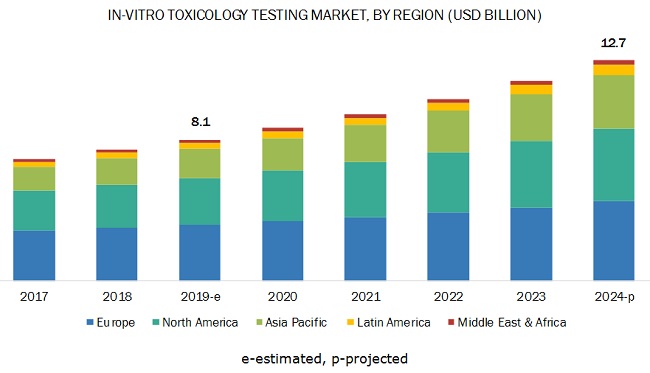
Global Pharmaceutical Retail Market – Analysis by Type (Independent Retailers, Pharmacy Chain), Market Share, By Region, by Country: Opportunities and Forecasts (2018-2023) – By Region (N. America, Europe, APAC, ROW), By Country (U.S., Canada, Germany, UK, India, China, Japan), the global market is projected to display a robust growth represented by a CAGR of 4.94% during 2018 – 2023.
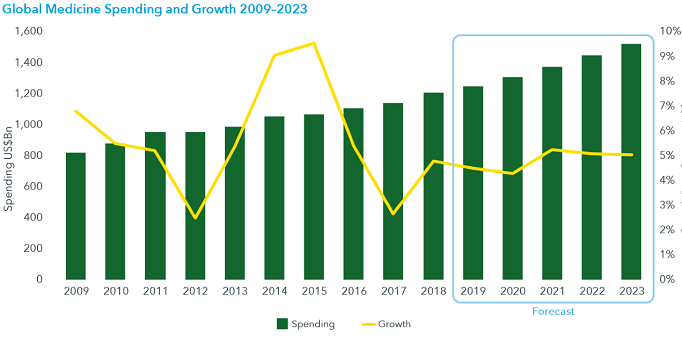
- Academicians including Professors
- PhD Scholars
- Students carrying out laboratory and field studies
- Pharmaceutical Industrial Giants
- Toxicology Societies and the people Associated
- Nobel laureates in Health Care and Medicine
- Pharmacists
- Pharmacologists
- Toxicology Professionals
- Pharmacology Professionals
- Genetic Professionals
- Forensic Professionals
- Pharmaceutical companies
- Clinical Laboratories and Technicians
- Bio-informatics Professionals
- Research Institutes and members
- Supply Chain companies
- Manufacturing Companies
- Training Institutes
- Business Entrepreneurs
Conference Highlights
- Medical Toxicology
- Clinical Toxicology
- Computational Toxicology
- Food and Nutritional Toxicology
- Toxicogenomics
- Forensic Toxicology
- Enzyme Inhibitors
- Mass Spectrometry
- Analytic Toxicology
- Clinical Pharmacology
- Pharmacogenetics
- Molecular Pharmacology
- Immunopharmacology
- Cardiovascular Pharmacology
- Neuropharmacology
- Experimental Pharmacology
- Applied Pharmacology
- Advances In Pharmacology
- Pediatrics Pharmacology
- Drug Safety
- Toxicology And Risk Assessment
- Environmental Toxicology
To share your views and research, please click here to register for the Conference.
To Collaborate Scientific Professionals around the World
| Conference Date | July 15-16, 2020 | ||
| Sponsors & Exhibitors |
|
||
| Speaker Opportunity Closed | Day 1 | ||
| Poster Opportunity Closed | Click Here to View | ||
Useful Links
Special Issues
All accepted abstracts will be published in respective Our International Journals.
- Journal of Clinical Toxicology
- Journal of Drug Metabolism & Toxicology
- Journal of Environmental & Analytical Toxicology
Abstracts will be provided with Digital Object Identifier by














